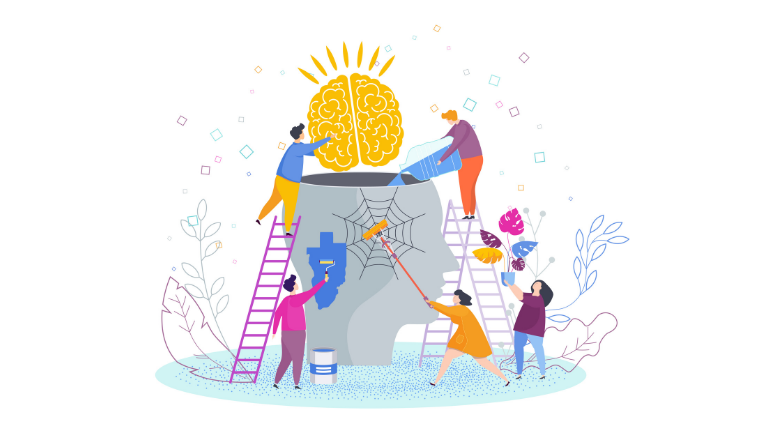There are few challenges to success, be it economic, emotional, or social, more pronounced and yet unaddressed than mental health and emotional wellbeing. In a year where physical health has been in the public eye, the unspoken psychological health pandemic continues to be unaddressed.
The Bill and Melinda Gates Foundation ‘Goalkeepers’ programme seeks to address this matter, and has published some alarming data to illustrate the severity of the issue:
- Between ⅓ and ½ with severe mental disorders in the ‘Global North’ receive no treatment;
- This figure increased to c.¾ in the ‘Global South’;
- Statistically, there is one death from suicide every 40 seconds somewhere in the globe; and,
- The projected cost of untreated mental health by 2031 is $16 trillion, with an incalculable human cost.
Whilst professional and clinical help is required in many cases, individuals can conduct a personal wellbeing audit, and apply some of the following tips to ensure their mental health.
The pen is mightier than the… prescription
Paul Mosley founder of Inkifi, a bespoke and sustainable photograph products supplier, reports that many customers have provided positive feedback on the impact of Inkifi’s personalised notebooks on their mental and emotional wellbeing.
Whilst there is evidence to suggest journaling can reduce stress, the precise explanation remains unclear. Paul suggests:
“Often with our personal or work problems we know the right thing to do deep down. Taking the time to write and journal often brings these solutions to light and decisions are better because of this. Writing down my thoughts always gives me a fresh perspective”.
Anti-social media
Research has indicated that Facebook activity is linked to Depression. Whilst this is disputed not least by Mark Zuckerberg, there is anecdotal evidence that the promise of social media to make the world better connected has not come true as imagined. Zuckerberg acknowledged this, stating:
“Facebook has a lot of work to do — whether it’s protecting our community from abuse and hate, defending against interference by nation-states, or making sure that time spent on Facebook is time well spent”.
Some specialists propose a social media holiday or shutting down social media accounts altogether to support mental health and wellbeing.
Use technology to draw the line
The battle between personal life and work-life has always been a challenge but has become all the more challenging during the COVID-19 pandemic. Whilst some have enjoyed working from home, many fear that they are now living at work.
While technology is in part responsible for this problem, it can also be part of the solution if it is used to draw the line between personal and professional time. Shweta Raina of bOnline, a leading full-service phone system provider for UK small businesses, suggests the following approach:
“Work-life balance is key to maintaining healthy mental and emotional wellbeing. Our top tip for business owners is to make use of a VoIP phone system. Business and holiday hours can be set, with appropriate professional greetings which direct calls to an out of hours voicemail whilst maintaining a stellar customer-caller experience”.
Healthy body, healthy mind
Have you ever wondered what you breathe in at work, Larry Page, the co-founder of Google did. He is recorded as using a particle counter in Google offices with this question in mind and how it affects our wellbeing. This triggered a sustainability drive within Google with a focus on using safe materials to build and furnish offices.
The Kingsfund think tank has calculated that 30% of the population with chronic physical health conditions have accompanying mental health conditions (predominantly Depression or Anxiety). Ensuring a healthy physical workplace can support not just physical health but mental health too.
Failure to plan is planning to fail
In every endeavour the above statement is true, and combatting the risk to mental health is no different.
Dr. Miriam Mikicki, Chief Operating Office at Hashiona, recommends applying a “Mood First Aid Kit” – a list of activities to help you cope with a low or anxious mood and to improve your emotional wellbeing.
Hashiona has developed an app to support people with thyroid disorders with mental health symptoms as well as physical symptoms. Their research suggests that it is a good idea to map out the situations in which you might need extra mental health support.
“Having identified situations and circumstances that cause low mood, the next step is to create a menu of potential personalised activities that can help you to overcome these triggers. This can include simple activities such as breathing exercises, getting outside, petting your dog, etc.
The main aim of this is that after a few weeks you will notice in which situations a low mood appears, and you will have a tested list of activities which will help you to cope with the situation”.


